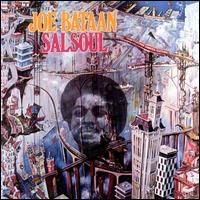 You've heard many a ska artist proclaim himself the King of Ska. Perhaps none has more right to do so than the unforgettable Prince Buster, especially since he won so many of those sound system battles against Dodd and the other greats of the early sixties.
You've heard many a ska artist proclaim himself the King of Ska. Perhaps none has more right to do so than the unforgettable Prince Buster, especially since he won so many of those sound system battles against Dodd and the other greats of the early sixties.By the late 1970s, Prince Buster was in serious financial trouble. Fortunately for him, ska was experiencing a revival in the United Kingdom. In 1979, the band Madness released its first record, a tribute to Buster called "The Prince", which urged ska fans to remember "the man who set the beat", stating "So I'll leave it up to you out there/To get him back on his feet". Interest in Buster soared during this time; he received royalties when his songs were covered by bands like The Specials, The Beat and Madness and his old records were reissued and sold well. Buster is similarly mentioned in The Toasters song "Shebeen": "And there was an old man/Who used to bring up the sounds/And he kept those beats, he kept those beats/From when Prince Buster was around".
Tracklist:
South of the Border
Protection
Sata Masa Gana
Still
Wish Your Picture
Stick By Me
Why Not Tonight
Sister Big Stuff
Stand Accused
Bride Over Troubled Water
Young Gifted and Black
Cool Operator
Prince Buster - Sister Big Stuff (Melodisc, 1976)
(192 kbps)



















